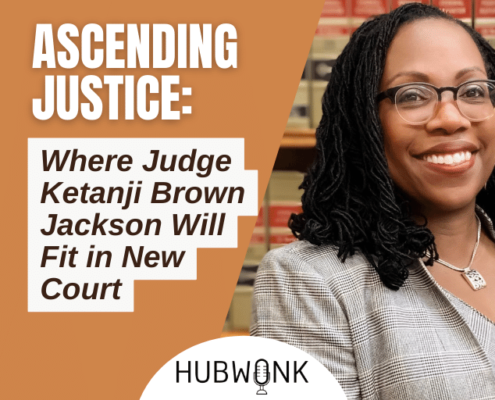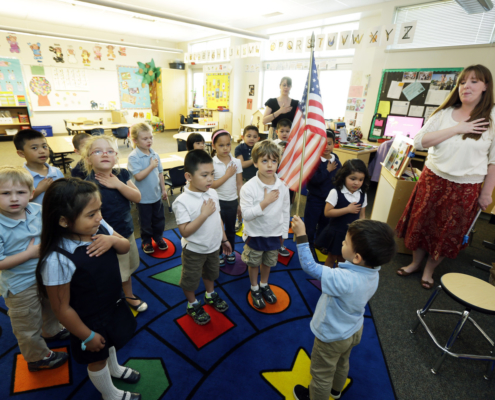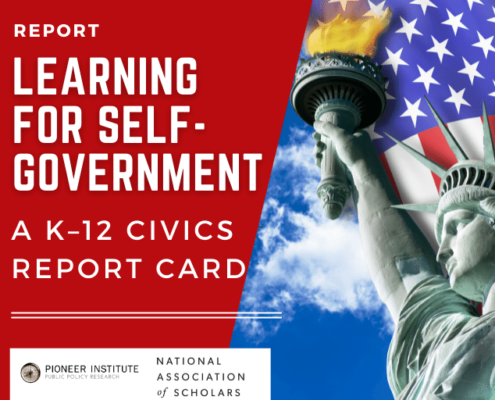Draft History and Social Studies Frameworks Continue Trend Toward Dumbing Down Public School Content
Weaker ELA and math standards have already produced declines in student achievement
BOSTON – The draft of the Massachusetts History and Social Science Curriculum Frameworks that was released for public comment in January would follow in the footsteps of recently adopted English, math, and science standards by representing a decline in academic quality, content, and coherence compared to their predecessors, according to comments on the draft published by Pioneer Institute.
“The watering down of the content children learn in public schools continues,” said Dr. David Randall, director of research for the National Association of Scholars and co-author of 2018 Proposed Revisions to Massachusetts History and Social Studies Frameworks. “This time it comes in the form of eviscerating the 2003 Frameworks that received wide acclaim for being among the nation’s best history standards.”
Along with Dr. David Randall, Jane Robbins, a senior fellow at the American Principles Project, and The Concord Review Editor and Founder Will Fitzhugh highlight five ways in which the draft revision is deficient:
- It substitutes incoherent fragments for coherent sequences of American and European history;
- It is 50 percent longer than its predecessor and written in unreadable education-school jargon;
- It replaces a full account of America’s exceptional history and European past with the history of politically correct protest movements;
- It shortens the European and American history sequences so much as to render them deficient; and
- It replaces an MCAS assessment that would allow parents and the public to judge how well public schools in Massachusetts are teaching history with meaningless “expectations” for each grade.
To ensure that students understand the principles of American democracy, the Commonwealth’s 1993 Education Reform Act required them to pass a U.S. history test as a condition of high school graduation. But the Patrick administration jettisoned the requirement in 2009, citing the $2.4 million administration cost in a $4.5 billion state K-12 education budget.
History and Social Science is only the latest in a string of unfortunate curriculum revisions. In 2010, Massachusetts replaced nation-leading English and math standards with inferior Common Core national standards that dramatically cut the amount of classic literature students read and left them two years behind students in the highest-performing countries in math. A 2017 update was virtually unchanged in math and represented further deterioration in English.
In 2016 the Commonwealth adopted science standards that curriculum expert Ze’ev Wurman called “clearly inferior” to their predecessors.
Under the previous English, math, science, and history standards, state SAT scores rose for 13 consecutive years. In 2005, Massachusetts students became the first ever to finish first in all four categories of the National Assessment of Educational Progress (NAEP). They repeated the feat every time the tests were administered through 2013.
On the 2007 Trends in International Math and Science Study (TIMSS) assessment, Massachusetts students were internationally competitive in math and science, with our eighth-graders tying for first place in science.
But weaker standards have taken their toll on student achievement. Massachusetts failed to finish first on all four NAEP categories in 2015, notably in 8th grade reading. Between 2011 and 2015, the Commonwealth was among approximately 20 states whose NAEP scores fell. SAT scores have also fallen, with a particular drop in writing that is likely attributable to the reduction in classic literature.
The authors call on the Board of Elementary and Secondary Education (BESE) to reject the 2018 draft revision in its entirety and implement both the 2003 Framework and the accompanying MCAS test.
If BESE wants to strengthen civics instruction, it should go even further:
- Turn the American Government course, which is an elective in the 2003 Frameworks, into a required course;
- Add a civics component to the MCAS test; and
- Endorse the Civics Education Initiative, which has been enacted in 15 states and requires high school students to pass the same test those applying for U.S. citizenship must pass.
This public comment is a precursor to a detailed research analysis by the co-authors to be released at a later date.
About the Authors
David Randall is Director of Research at the National Association of Scholars. He received his PhD in History from Rutgers University.
Will Fitzhugh earned bachelor’s and master’s degrees from Harvard. He founded The Concord Review, which for 30 years, has published student non-fiction essays from around the globe.
Jane Robbins is a senior fellow at the American Principles Project. She earned a J.D. from Harvard Law School.
About Pioneer
Pioneer Institute is an independent, non-partisan, privately funded research organization that seeks to improve the quality of life in Massachusetts through civic discourse and intellectually rigorous, data-driven public policy solutions based on free market principles, individual liberty and responsibility, and the ideal of effective, limited and accountable government.
Get Updates On Our US History Initiative
Related Posts:





















